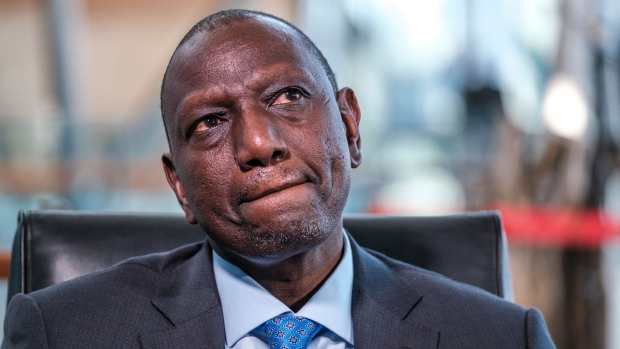May 4, 2023
Kenya’s Government Plans to Introduce 3% Crypto, Influencer Tax as Cash Sources Dry
, Bloomberg News

(Bloomberg) -- Kenya’s government plans to introduce a 3% tax on digital assets for the coming budget year as other sources of funding prove expensive or inaccessible.
In budget financing proposals presented to lawmakers on Thursday, monetization of digital content will attract a 15% levy, while the rate for the top salary tax band jumps to 35% from 30%.
The East African nation’s government is widening its taxation base in line with recommendations of multilateral lenders, even as its domestic debt market demands higher returns and international markets shun emerging markets in favor of richer economies.
The bill makes the “most far-reaching changes that have been witnessed in tax legislation in the recent past,” according to a research note by Nairobi-based law firm Anjarwalla & Khanna. “The tax measures introduced are aimed at expanding the taxes collected by the government, against the backdrop of fiscal pressure in the currently prevailing economic circumstances.”
Cash Crunch
The government is facing a cash crunch if a requirement to remit taxes on betting, digital assets and rental income within 24 hours is anything to go by, according to Nikhil Hira, a partner at Nairobi-based advisory firm Kody Africa.
“This will put further burden on Kenyans, who are already facing difficult times with the high inflation rate impacting the cost of living,” he said. “With increased taxation and other levies, disposable income is going to reduce for the majority of the population.”
President William Ruto is targeting nearly doubling collections to 5 trillion shillings ($36.7 billion) in five years, and has vowed to slash accumulated liabilities to address vulnerabilities and stimulate economic growth.
Kenya projects revenue of as much as 2.894 trillion shillings in the year that starts in July, about 14% more than it anticipates to get this fiscal year, according to a statement from the presidency last week.
Other Proposed Measures:
- Each employee to pay 3% of basic salary into a housing fund, which will be matched by the employer and capped at 5,000 shillings per month
- Reduce excise duty on phone, Internet data services and fees charged for money transfer services by banks, money transfer agencies and other financial service providers to 15% from 20%
- Increase excise duty on fees charged for money transfer services by telcos to 15% from 12%
- Excise duty on betting, gaming and lottery winnings jumps to 20% of the amount wagered, paid or won, from 7.5%
- Plans to remove value-added tax on liquid petroleum gas and fertilizers, while doubling value-added tax on fuel to 16%
- Proposes tax amnesty on interest, penalties or fines on unpaid tax accrued by Dec. 31, 2022
- Proposes 10% excise tax on imported cement
- 10% export and investment promotion levy on custom value of goods including cement clinker, semi-finished products of iron or non-alloy steel, bars and rods of iron, sacks and bags, paperboard
- Minimum threshold for so-called turnover tax reduced to 500,000 shillings from 1 million shillings; upper limit reduced to 15 million shillings from 50 million shillings
- This brings small enterprises previously excluded into the tax fold, and increased companies that will move into bracket that pays corporate income tax, according to Robert Maina, a tax expert at EY
- Cuts residential rental income tax to 7.5% from 10%
- Railway Development Levy, used to fund operations of a Chinese-backed railway, reduced to 1.5% of value of cargo
- NOTE: Kenya’s budget will be presented on June 8
(Updates with analyst comment from fourth paragraph)
©2023 Bloomberg L.P.





